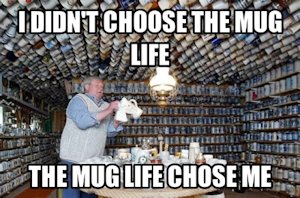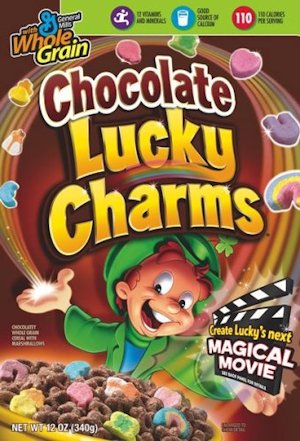Black Heritage 2014: The War on Language
 | | Yes, those are tampons, and no, this isn't photoshopped |
"I want to talk today about a controversial word," MSNBC host Melissa Harris-Perry began on her show last December, "It's a word that's been with us for years, and like it or not, it's indelibly printed in the pages of American history, a word that was originally intended as a derogatory term meant to shame and divide and demean. The word was conceived of by a group of wealthy white men who needed a way to put themselves above and apart from a black man, to render him inferior and unequal and to diminish his accomplishments...Y'all know the word I'm talking about: Obamacare."
While MSNBC certainly doesn't speak for all liberal thinkers in this country, Harris-Perry's unsubtle suggestion that "Obamacare" is a racial slur is not without many proponents. Ignoring the fact that "Hillarycare" was never deemed sexist or that "Romneycare" was perfectly acceptable language during the last presidential campaign, people on the left have constantly tried to toss aside the term "Obamacare" as something only angry white conservatives would use (much like the way they have largely branded the word "liberal"). Regular readers of this blog will note that I rarely, if ever, use the term myself, prefering to call the Affordable Care Act by its given name, but I don't do that because I think it's a racist term; I do it because it helps me not sound too shrill or partisan.
If this were an isolated case, I wouldn't be bringing it up today, during my annual Black History Month meditation on the state of race relations in America. Indeed, there seems to be a war going on concerning what language is deemed acceptable and what language is not. Anybody who's been paying attention will note that, just last month, there was the controversy over Seattle Seahawks cornerback Richard Sherman getting angry and ranting during a post-game interview. If Sherman had been a white man, his subsequent apology for his behavior would have been the end of the story, but no, even three weeks later, national news outlets such as CNN are still discussing the event.
 | | Oh great, now "mug" is off-limits too |
When people on Twitter began throwing around the word "thug" to describe him, social liberals across the nation set their alarms a-blazing, decreeing that "thug" is now a racist code word just as evil and offensive as the N-word. On one hand, I do not disagree that some people have used the word "thug" in a racist manner, but that does not make the word, in and of itself, racist. Indeed, in ice hockey, where there are far more pasty white folks in the game (Canadians, mostly), the word "thug" is considered a badge of honor. It also wasn't long ago that "Thug Life" was its own cultural meme. But now, because some people have used the word to deride the likes of Trayvon Martin and Richard Sherman, who happen to be black, it is now off-limits to the politically correct.
That's not the only place where sports and language have collided in the last year. There has also been a long-brewing controversy over the name of Washington's football team. Apparently, it is highly offensive that we live in the 21st Century and still have a group calling themselves "Redskins." The president himself voiced a negative opinion of the team's name, and members of the House tried to pass a bill that would void all trademark registrations that were deemed derisive toward Native Americans (the constitutionality of such a bill is dubious, at best, but it never made it out of the House). During the 2013-2014 season, the Oneida Indians held protests in front of Redskins games and ran radio ads, the chief took the case to the United Nations, and the Council of the District of Columbia passed a resolution urging the franchise to change its name. The team leadership has met with the Oneida Indians leadership, but citing public opinion polls and their own liberty to do as they please, they have no plans to change the team's name or mascot any time soon.
 | | Have you ever seen such an unbridled display of hatred toward Native Americans? |
Though I believe the fight against racism has passed a turning point where it does more social harm than good these days (if you need clarification on how I've reached this conclusion, see my previous "Black Heritage" blogs), I understand the need to stigmatize hateful words. I could understand people getting upset if a football team were called the "Nashville Negros" or the "San Francisco Sluts," and in political discourse, I tend to get annoyed when people throw around derogatory terms for their opponents, terms like "commie," "Uncle Tom," "socialist," "peacenik," "Nazi," and "teabagger." There should certainly be a social standard--one that is culturally enforced, not legally mandated--and we should be able to agree to treat each other with a certain amount of respect simply for being human beings.
However, throwing out the race card because people call the Affordable Care Act "Obamacare"? Surely that's a little silly and oversensitive. Once you start to use accusations of racism as a cudgel against your opponents, you stop being an enforcer of social standards, instead turning into a caricature of the politically correct nanny who finds offense in everything. It becomes a shortcut through critical thinking, allowing you to discard foreign viewpoints because you've assumed they can only be founded by racism. It becomes the very thing you claim to be fighting: bigotry.
 | | Dear God! |
Besides, branding a word as racist doesn't do anything to actually combat racism. The fact that I'm not even willing to type the N-word for fear of being labelled a racist is a testament to the power of a stigma created by the civil rights movement, and that word deserves its reputation for the historical damage it did to society. But to put "thug" on the same level? That can't be healthy. How long until you've thrown out half the dictionary because you've decided it's full of so many horrible words? If you come across somebody using what you believe to be a racial code word, then confront that person about his racism, not his language. It's just a word, people, and as my mother taught me long ago, words do not have the same power as sticks and stones.
I truly believed that the election of Barack Obama would put a lot of these issues to bed. I now understand how ludicrously naïve that was, because if anything, it's made our cultural sensitivity to perceived racism worse, not better. It has become second nature for pundits like Melissa Harris-Perry (who, incidentally, got into trouble recently for mocking Mitt Romney's adopted black grandchild) to conclude that anyone who doesn't support everything the first black American president stands for must be a closet racist. It's just so much easier than actually considering all sides of any given political subject. Do you think the federal government is spending too much money? That's because you're a racist, or because you've been fooled by all the racists over at Fox News who twist the truth in order to further their racist agenda.
It's just exhausting. We expend far too much energy on this, as a nation, and instead of making progress, we're just spinning our wheels. Of course racism exists and we must be vigilant against it, but it is impossible to completely eradicate it. When you decide to put all your energy into changing the name of "Cocoa Puffs" because you've decided it's racist (and homophobic), do you honestly think you're actually changing anything? Does branding "Obamacare" as a racial slur stop anyone from disagreeing with the president solely on the basis of his skin color? Does excizing "thug" from popular use stop people from joining the K.K.K. or dressing up in blackface? Does opposing the name of a football team repair the damage done by European settlers a few centuries ago? Seriously, what's the point? I'm certain that, if your calling is the fight against racism--a truly noble fight--you can find better ways to do it.
-e. magill 2/7/2014
|
|